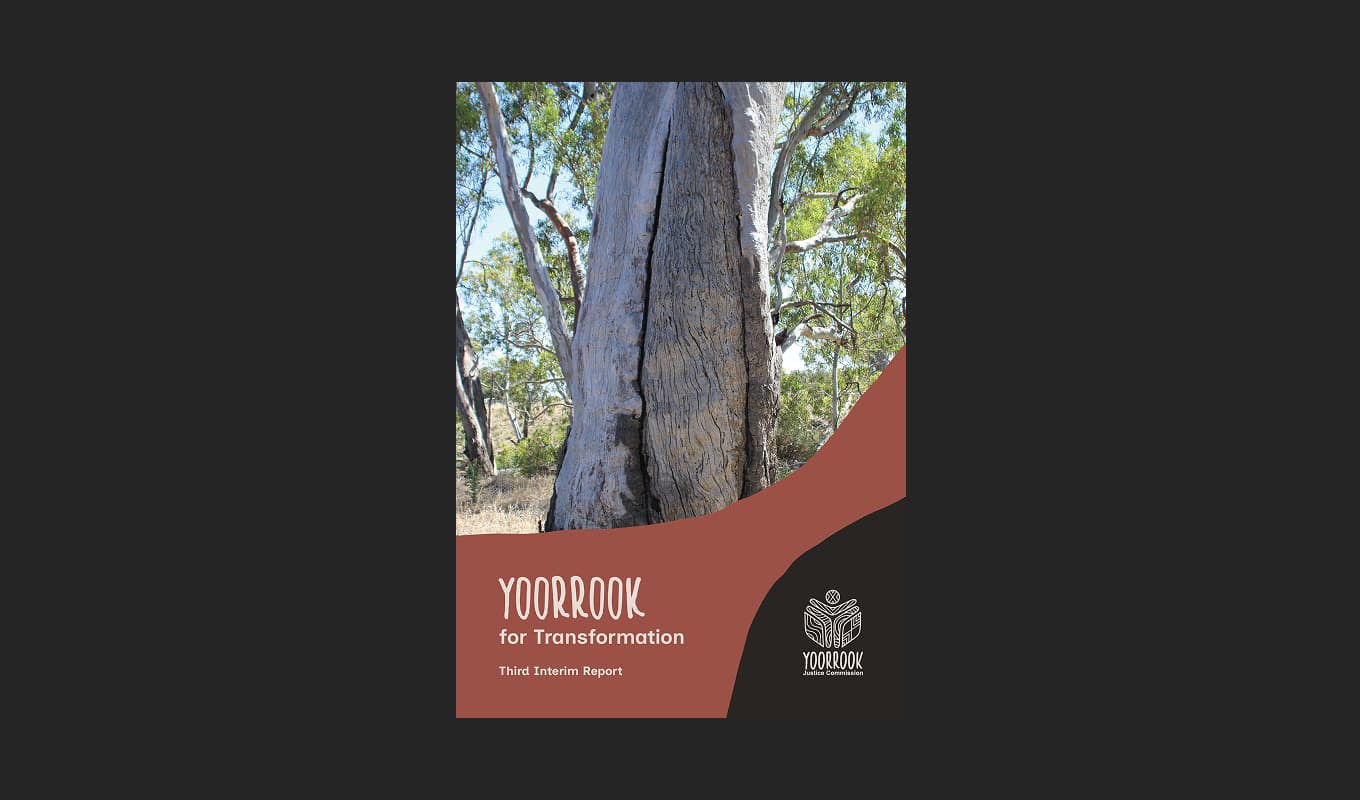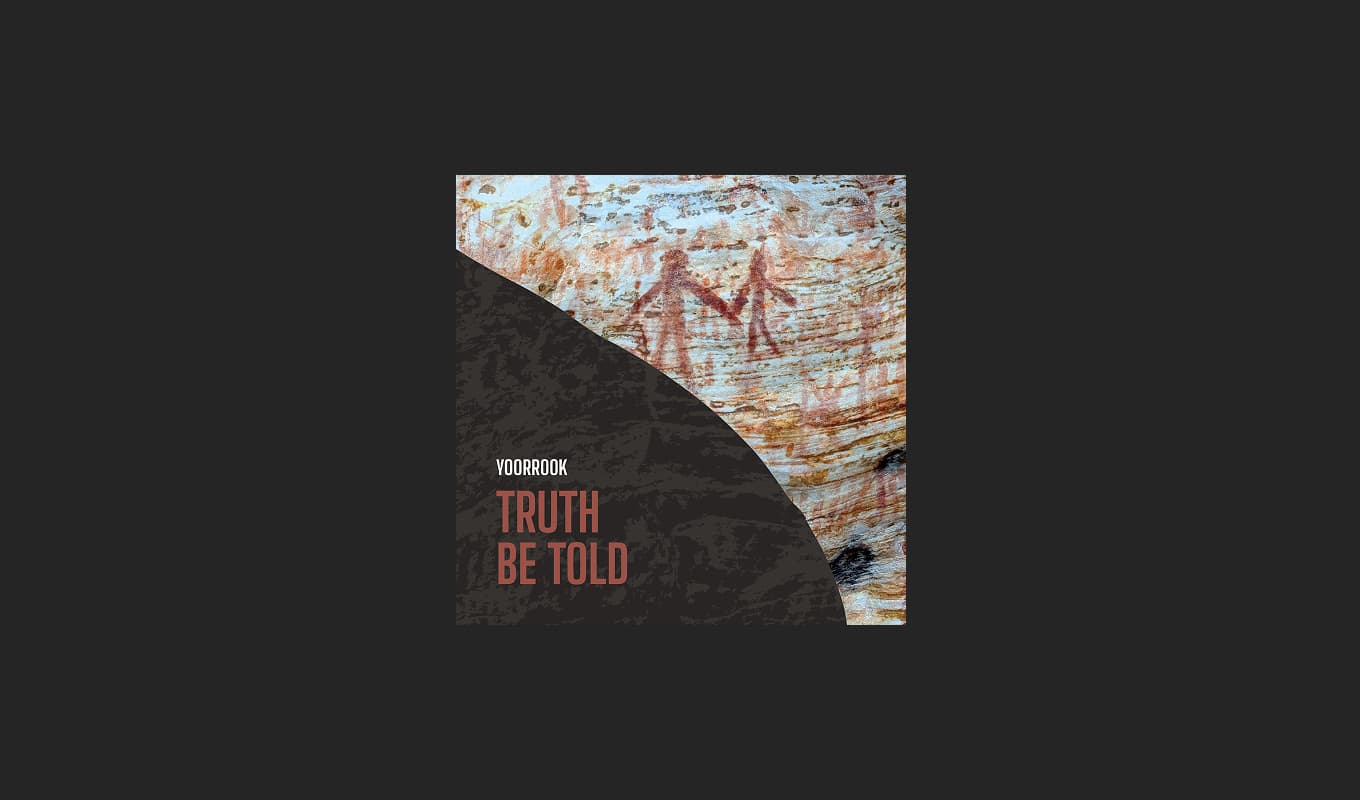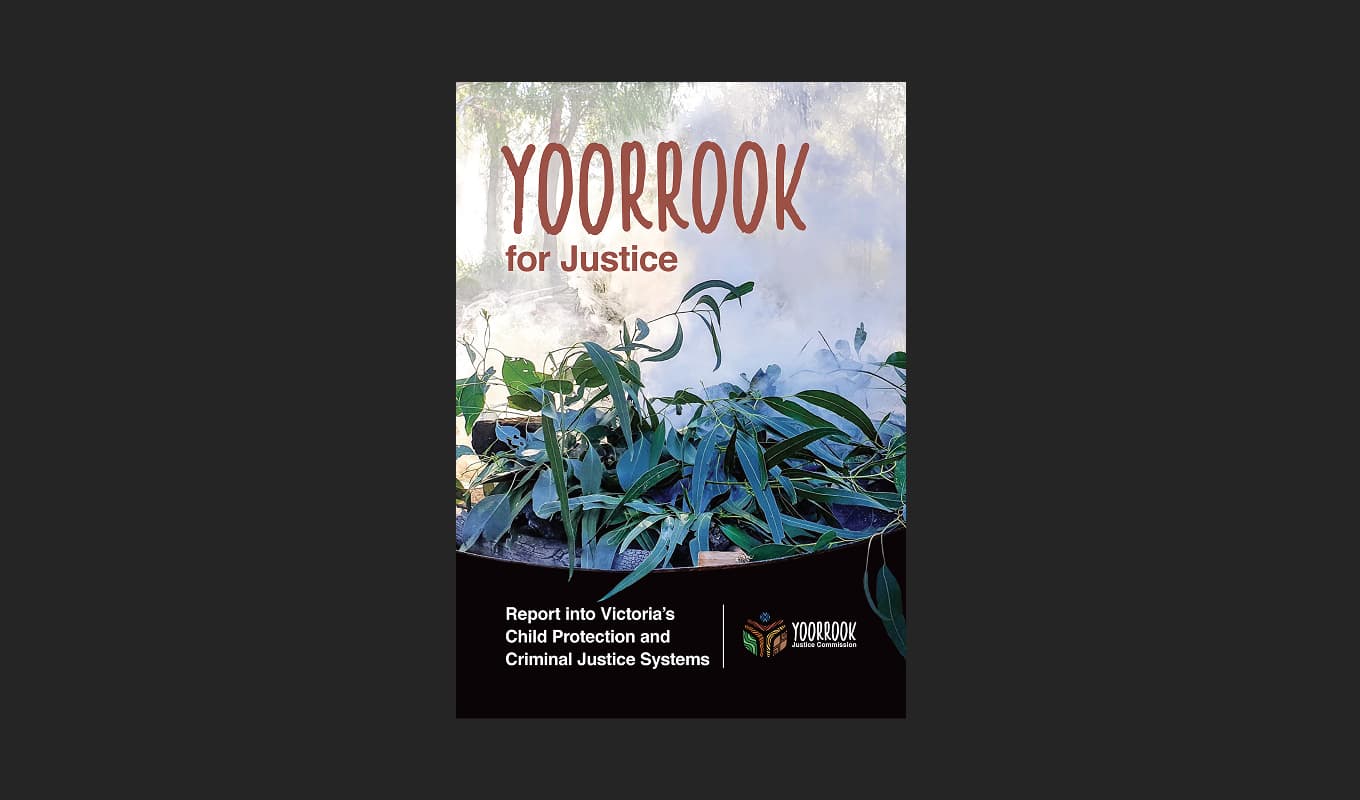Rebecca Jane McCann
This submission reflects on the harms of colonisation including massacres and separation of families, and how these continue to impact on First Peoples today including through intergenerational trauma, and high rates of incarceration, poverty and ill-health. They characterise the education they received about First Peoples’ histories and cultures in the school system as abysmal. They call for deep and profound changes to the school curriculum, state and national treaties, and to see the Uluru Statement from the Heart fulfilled. They state that non-Indigenous Victorians can contribute to truth-telling and treaty by educating themselves about history, standing up to racism, and elevating First Nations voices and calls for change.
Submission Transcription
I know that the British Crown and its armed colonising forces landed upon the shores and set foot upon the land of so-called Australia – including Victoria, where we are – and set about behaving as if they owned it. This involved violent (deadly) “dispersals”, massacres in some instances, pushing First Peoples off their home lands, country they had cared for lovingly and cleverly for millennia… dispossessing First Peoples and disconnecting them from culture and each other, their loved ones, their communities and families. Children were stolen right out of their Mother’s / Father’s arms – and put into institutions to assimilate them to a foreign culture. The culture of the invaders. By calculated design and brute force where necessary, the Crown and ruling successive governments of this colonised state attempted to eradicate First Peoples and their culture – wishing, it would seem, to wipe their existence from the face of the country. Colonisation, as in: Separating families and communities, forbidding the practice of culture or speaking in language, violent dispossession of First Peoples’ home lands and way of life – and the compounding effect of the trauma and injustice visited upon First Peoples, generation after generation, has had a devastating impact. This impact is one we all have to reckon with, sit with and face today. This country of ours – including this state of Victoria – is a hurt, fractured and troubled one at heart, plagued by deep historical wounds left by the horrifying process of colonisation. First Peoples are disproportionately burdened by the biggest social challenges faced in our society today: incarceration (adult and even more shockingly, youth), unemployment, poverty, ill health (including mortality statistics that are utterly unacceptable for a “civilised” country). We know intergenerational trauma is one legacy of colonisation to this very day. We know disadvantage is another. And the two are indelibly linked. The history of this country, and our state of Victoria within it – built on violent invasion and colonisation – is one kind of shame. Another kind of shame is the ongoing, living, present-day shame of the status quo – the disparity in life quality and life outcomes (the so-called ‘gap’). It is hanging over us and darkening our collective heart, and the longer it remains unaddressed (that is to say, the longer the TRUTH remains unsaid and unfaced, and in turn the longer we wait for healing and justice) – the longer we wait for healing and justice) – the greater its weight.
I was born in 1986 in the state of Victoria and graduated the secondary school system in the state of Victoria in 2003 (having completed my VCE). The education and learning throughout my schooling years – about the history and truth of colonisation, including the stories of First Nations people, and incorporating Aboriginal and Torres Strait Islander voices, was minimal at best. Abysmal, really. The violence and dispossession was glossed over, and the stories told to us were those of the colonisers. I grew up from age 2 to age 12 in Mansfield, at the foot of Mt Buller and Mt Stirling, in the Victorian High Country. I am ashamed to say that I realised last year (2023), prompted because of my activism on the Voice Referendum Yes campaign, that I did not know what Country I had grown up on. I did not know who the Traditional Owners are. Acknowledgement of Country has become normalised and commonplace in my adulthood, indeed I start many union meetings with an AoC in my job as an Organiser – so I know this land we sit on in Melbourne/Naarm is Wurundjeri-Woi Wurrung Country. I looked into it immediately and learned that Mansfield is Taungurung Country. As to Aboriginal and Torres Strait Islander culture – I certainly recall some teachers in primary school who brought some culture into the classroom. I remember listening to Christine Anu’s My Island Home in music class. I remember amazing my teacher with my intense focus and concentration when we practiced dot painting in art class. In conclusion: No. I do NOT feel that my learning about First Nations history and culture in Victoria’s education system was comprehensive.
We need deep and profound education curriculum changes – to incorporate many First Peoples stories, lived experience, family histories and voices. We need to teach our children what colonisation did, and the resulting disadvantage experienced by First Nations people. We need to honour, respect, and celebrate our connection (First Nations and non-First Nations Victorians) we live and work together on land that is home to the oldest and longestcontinuing culture in known history, and the Peoples who carry that culture in their bodies. THIS is something we should recognise, and elevate to its proper place at the heart of our story and identity, and the heart of our shared ‘Australian’ culture. I would like to see Treaties implemented in every state and Territory and nationally. And a constitutionally enshrined Voice, as the Uluru Statement asked for.
We can listen, with open hearts and open minds, with the objective of understanding. We can champion our allyship in tangible and practical ways, responding to calls to action from Aboriginal and Torres Strait Islanders. We can unapologetically stand up to racism and ignorance, with the objective being to bring people along with us – to a more reconciled place. We can advocate, activate and mobilise on any campaign that is being organised and led by First Nations people – anywhere we have been invited to get involved and participate. We should NOT be bystanders – this history is OURS TOO – and we non-Indigenous Victorians have benefitted and still benefit today from the bloodshed of Aboriginal and Torres Strait Islander people through the process of colonisation. Our privilege, our opportunities were built upon the subjugation of the First Peoples of this land. We each have a role to play in learning the truth of our history – shared and personal – and discovering and uncovering the stories of our families. The role they played in dispossessing First Peoples. We can share the load of educating and consciousness-raising amongst non-Indigenous Victorians, so it doesn’t fall to Aboriginal and Torres Strait Islanders to do the heavy lifting. We can say YES when we are asked to step up.
We can listen, with open hearts and open minds, with the objective of understanding. We can champion our allyship in tangible and practical ways, responding to calls to action from Aboriginal and Torres Strait Islanders. We can unapologetically stand up to racism and ignorance, with the objective being to bring people along with us – to a more reconciled place. We can advocate, activate and mobilise on any campaign that is being organised and led by First Nations people – anywhere we have been invited to get involved and participate. We should NOT be bystanders – this history is OURS TOO – and we non-Indigenous Victorians have benefitted and still benefit today from the bloodshed of Aboriginal and Torres Strait Islander people through the process of colonisation. Our privilege, our opportunities were built upon the subjugation of the First Peoples of this land. We each have a role to play in learning the truth of our history – shared and personal – and discovering and uncovering the stories of our families. The role they played in dispossessing First Peoples. We can share the load of educating and consciousness-raising amongst non-Indigenous Victorians, so it doesn’t fall to Aboriginal and Torres Strait Islanders to do the heavy lifting. We can say YES when we are asked to step up.
Truth-teller consent
Contact us about this submission
Contact us if you’d like to discuss this submission.
Similar submissions
Explore submissions from other witnesses that discuss similar topics.
Mary Hassall
This submission is from Mary Hassall, a descendant of James Hassall, after whom the Hassall creek on Gunditj Country is named. It discusses her resear... more
Viki Sinclair (Fowler)
Viki Sinclair is a direct descendant of one of the original settlers of Gippsland, Colin McLaren. In this submission, she tells her personal story of... more
Gayle Carr
Gayle Carr makes this submission on behalf of herself, Kathryn Williamson and the late Diana Halmarick. It outlines the range of historic reference ma... more
Gerard Finnigan
Gerard Finnigan is a non-Aboriginal person who grew up on Gunditjmara Country and has been mentored by and worked with First Peoples throughout his li... more
Reports and Recommendations
Read the official reports and recommendations of the Yoorrook Justice Commission.

Yoorrook for Transformation
Third Interim Report: A five-volume comprehensive reform report presenting evidence and findings on systemic injustices, and specific recommendations for meaningful change to transform the future.

Truth Be Told
An official public record that documents First Peoples experiences since colonisation, preserves crucial testimonies for future generations and creates an enduring resource for education and understanding.

Recommendations for change
Yoorrook Justice Commission’s recommendations for truth-telling, justice, and systemic reform in Victoria.
